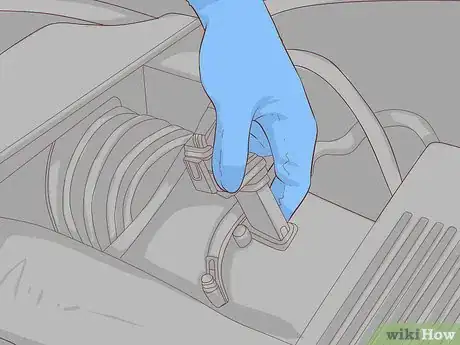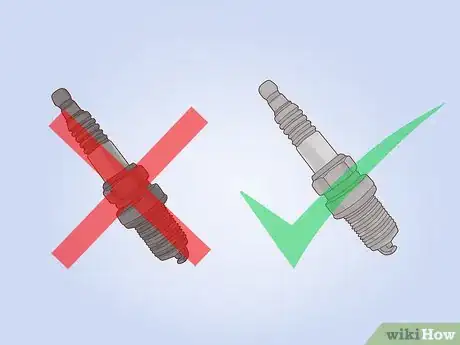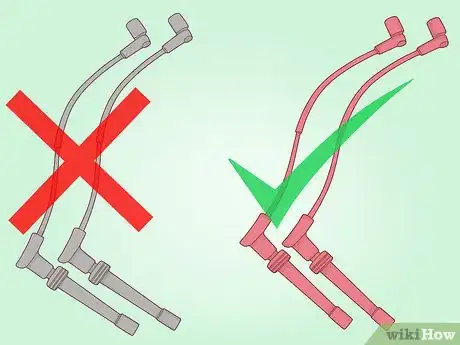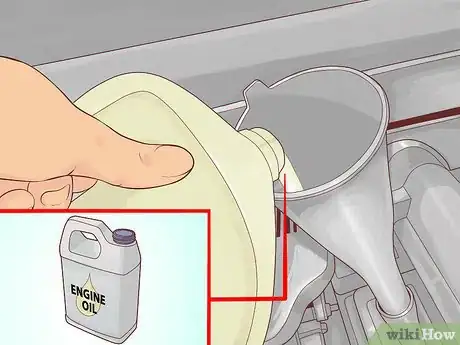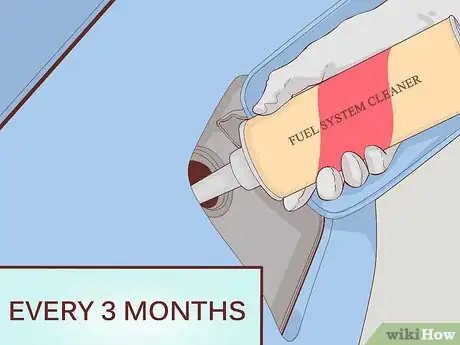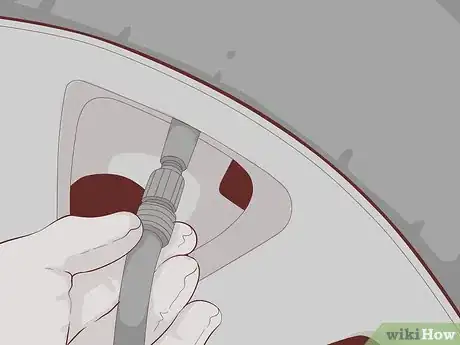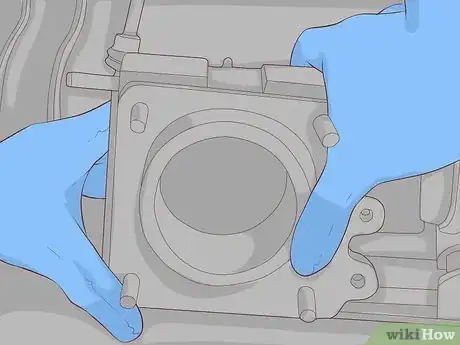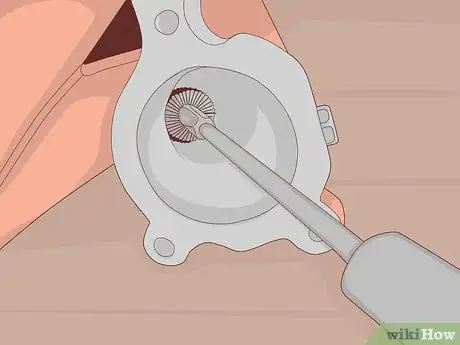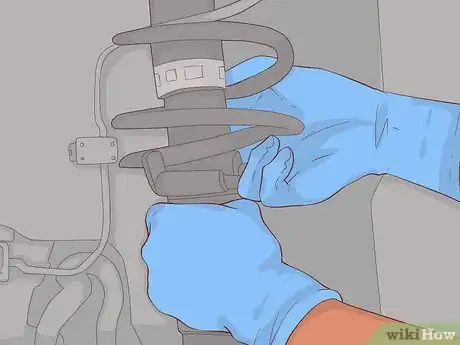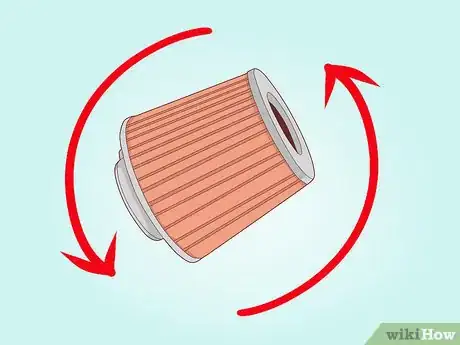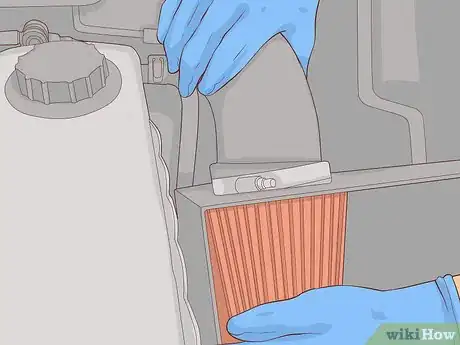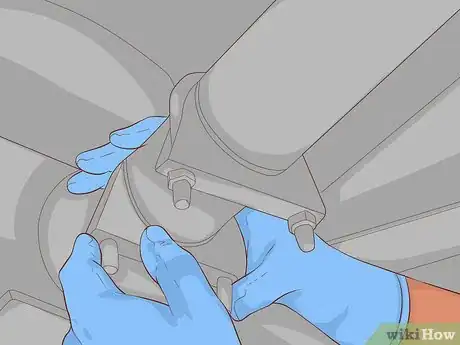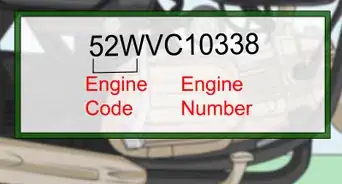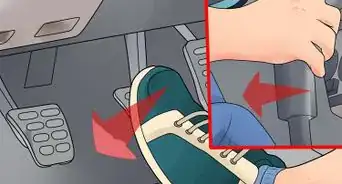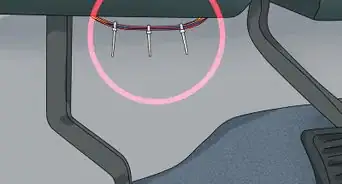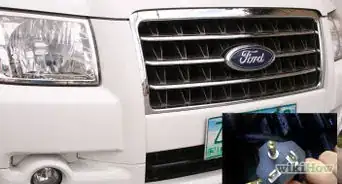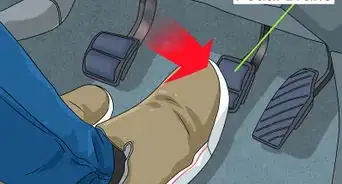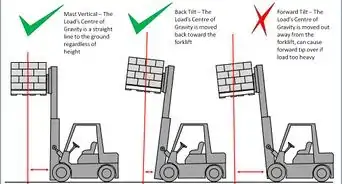X
wikiHow is a “wiki,” similar to Wikipedia, which means that many of our articles are co-written by multiple authors. To create this article, volunteer authors worked to edit and improve it over time.
This article has been viewed 32,274 times.
Learn more...
Performance is a concern for many truck owners. Although pickup trucks are known for their power and fuel efficiency, there are many ways to maximise their output. Listed below are some things that you can do to improve your truck's efficiency.
Steps
Method 1
Method 1 of 2:
Maintaining Your Truck
-
1Have your truck regularly serviced and tuned. Your mechanic can check if there are components that need to be replaced and fixed. A well-maintained vehicle runs efficiently.
-
2Change old spark plugs. Replacing this essential car component promotes fuel efficiency and performance providing the optimal spark to ignite the most air/fuel mixture, boosting engine combustion and reduces unburned fuel waste emissions. This should be changed regularly because they wear out after some time. Most recommend replacing them every 50,000 miles.
- Experts recommend using iridium spark plugs. They last longer than regular copper or platinum spark plugs.
- Always check with manufacturer or your truck service book for the recommended spark plugs. Although iridium spark plugs do last longer than cooper or platinum spark plugs, copper metal is a better conductor for electricity and creates a bigger ignition spark.
- Inspect each spark plug for the correct electrode gap. Manufacturers package spark plugs with gauge already adjusted and protected with a small plastic or carton cylinder around the thread protecting the electrode from impact.
- Use a spark plug gauge to check and adjust gap if you drop the spark plug. Most auto parts stores have spark plug gauge key-chains on display at the counter along with single electrical grease packs.
Advertisement -
3Replace the spark ignition wires when changing the plugs. It is recommended to use a high quality wiring harness set with silicone isolation. Silicone has superior heat tolerances and are more flexible and higher tensile strength.
- Worn or cracked wiring can reduce performance or break off when pulling the booths making plug removal more difficult.
- Inspect contact connection plugs on ignition coils and spark plugs for a solid connection grip and use electrical grease to prevent arcing short-circuit damage on the cables.
-
4Have a regular oil change. It extends your vehicle’s lifespan and keeps it running smoothly by having the parts of the engine clean and well lubricated.
- Using synthetic oil is highly recommended. They perform better in extreme weather and lubricate engine components better than regular oil.
- Use the recommended thickness/Viscosity S.A.E oil rating for your vehicle's mileage and weather season.
-
5Use a fuel system cleaner on your truck every 3 months. It keeps the fuel system clean by removing dirt and carbon buildup in the engine's valves, cylinders and fuel injectors. This is a proven way to maximize fuel efficiency and boost engine performance.
- Pour the recommended treatment bottle on the empty tank before topping with fresh fuel. This helps mixing the fuel additive evenly.
- Refill after the entire tank is used up.
-
6Own a good set of tires and keep them in proper air pressure. Performance tires or lower resistance tires offer a better traction and handling than regular tires. The engine works harder with less inflated tires because of increased road friction.
- Read customer reviews on tire websites before making a decision.
Advertisement
Method 2
Method 2 of 2:
Modifying Your Truck
-
1Install performance fuel injectors and throttle body. It is a sure fire way to improve the horsepower and engine life of a truck. A larger throttle body paired with performance fuel injectors, efficiently maximise fuel delivery to an engine and provide the vehicle with improved horsepower, throttle response and torque.
- A larger throttle body allows more air volume to enter and performance fuel injector nozzles spray a finer and stronger mist of fuel that improves combustion power and efficiency.
- Not all vehicles can be outfitted with a bigger throttle body. It would be best to consult a mechanic or your dealer.
-
2Polish the inside walls surface of the intake manifold. Use a small high-speed rotary tool and a flexible drill bit extension to reduce air/fuel drag.
-
3Install high-quality shock absorber (dampening) struts. They improve the ride quality of the vehicle and last longer than cheap brands. A good set of shocks perform better in a variety of road conditions. These vital components, control the suspension system of a vehicle. It also provides the tires with improved road contact which is essential for better handling, torque and safe vehicle steering.
-
4Upgrade to performance air filters. They are proven to be more efficient than the typical factory air filters. Air filters improves the airflow by filtering dirt and other air contaminants from the engine.
- They are available in two types: The traditional paper air filter which is disposable and the replacement air filter that is reusable and washable. The second type is more expensive because it is made of a long-lasting material that can handle all types of driving conditions and less wind/air resistance.
-
5Install cold air intakes. This popular aftermarket assembly is the easiest way to improve a vehicle’s efficiency. It allows your engine to breathe better by converting warm air into dense, cold air. By enabling the natural flow of air in the engine, a vehicle is able to move faster, with less effort.
-
6Install aftermarket exhaust kits. It’s time to replace the stock mufflers with larger aftermarket exhausts that will for sure improve the airflow of the vehicle. These performance exhausts have pipes that are typically bigger in diameter and are proven to increase torque and boost the sound of the engine.
Advertisement
Community Q&A
-
QuestionWhat does a limited slip differential (LSD) do, and is it a good idea to get one?
 Community AnswerIt really is in the name. It limits slip. On an open differential the vehicle can make wheelspin with one wheel while the other one has no power. So if you're going racing on a track, the inner wheel could just spin while the outer wheel gets no power so there's no acceleration. In offroading, one wheel will spin if it is stuck while the wheel that isn't stuck gets no power. With an LSD, one wheel can only turn so much faster than the other wheel, making it better for getting around corners and offroading.
Community AnswerIt really is in the name. It limits slip. On an open differential the vehicle can make wheelspin with one wheel while the other one has no power. So if you're going racing on a track, the inner wheel could just spin while the outer wheel gets no power so there's no acceleration. In offroading, one wheel will spin if it is stuck while the wheel that isn't stuck gets no power. With an LSD, one wheel can only turn so much faster than the other wheel, making it better for getting around corners and offroading.
Advertisement
About This Article
Advertisement
